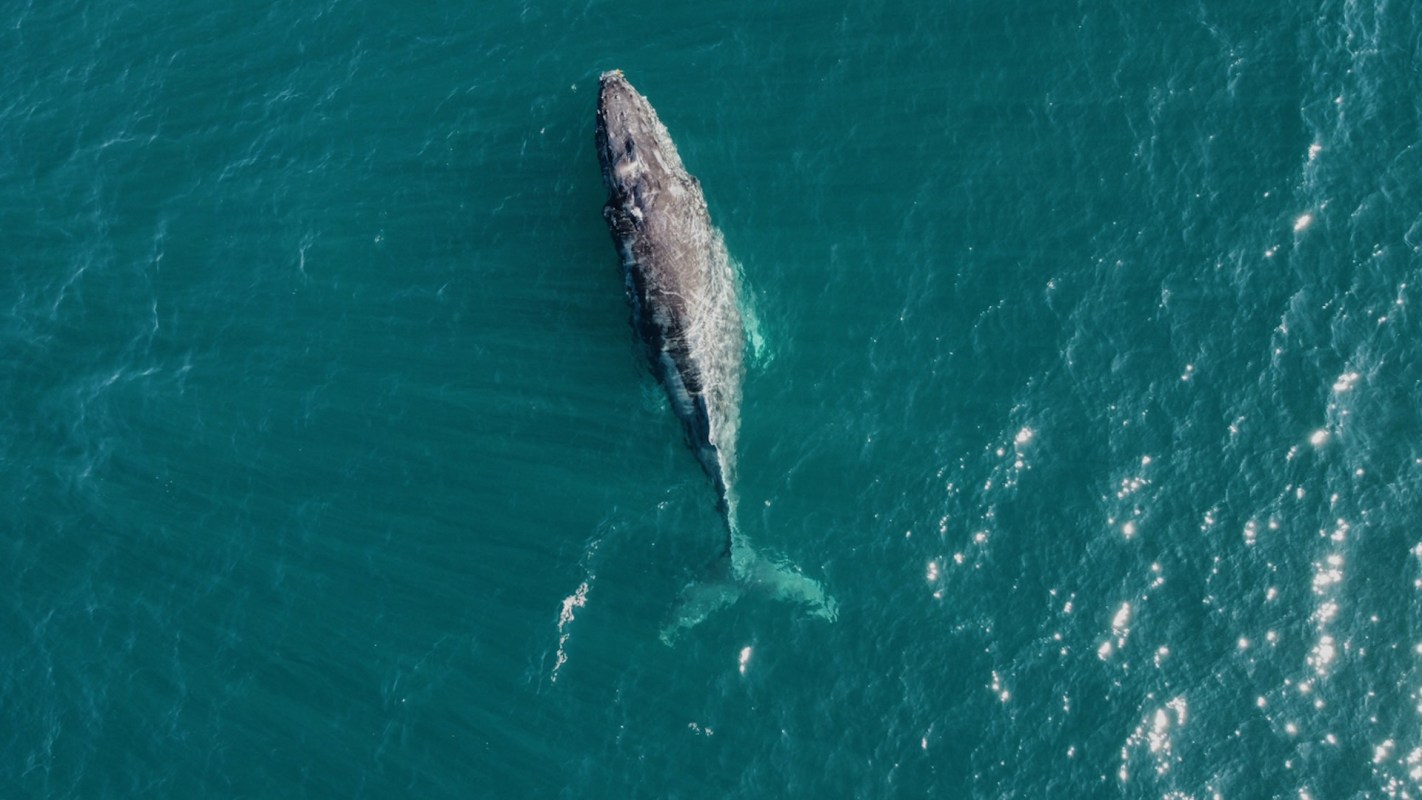A rare gray whale sighting off the coast of Massachusetts set scientists and nature lovers ablaze, but it wasn't all good news.
The mammal, extinct in the Atlantic Ocean since before 1800, was only able to reach the area because of a lack of sea ice, the Guardian reported Mar. 6. Gray whales usually call the North Pacific Ocean home. This one was spotted 30 miles south of Nantucket.
The Boston-based New England Aquarium said the baleen whales have been seen five times in the Atlantic and Mediterranean Sea over the last 15 years. They reach the waters through the Northwest Passage in the Arctic Ocean, which connects the Atlantic and Pacific.
"I didn't want to say out loud what it was, because it seemed crazy," Orla O'Brien, an associate research scientist at the aquarium's Anderson Cabot Center for Ocean Life, said.
Gray whales grow to 49 feet and 90,000 pounds. They can live 75-80 years and migrate 14,000 miles annually. After they were hunted to near extinction, conservation efforts in the 1930s and 1940s helped stabilize their numbers. Populations in the eastern Pacific are considered of least concern, while those off the coast of Asia are endangered.
National Geographic reported the animals travel to the Arctic to feed, and the Guardian noted the Northwest Passage has lacked ice in recent summers, allowing the whales to pass through.
"This new ice-free landscape is ultimately not a boon for the whales, whose prey, mostly tiny crustaceans, are dying due to a series of effects from warmer waters," according to Nat Geo.
The Arctic melting is concerning on other fronts too, as it could lead to droughts and heat waves in Europe this summer and over the next five years. Similarly, the disappearance of the Greenland ice sheet would cause a catastrophic rise in sea levels.
Nat Geo reported that 25-50% of eastern Pacific gray whales have died since 2019 because of the prey die-off and that others are emaciated. The gray whale sighted Mar. 1 was the same one seen off Miami in December. It may have headed there after it tried to go back through the Northwest Passage, only to find it blocked with ice that was not there previously when it was unseasonably warm.
"These sightings of gray whales in the Atlantic serve as a reminder of how quickly marine species respond to climate change, given the chance," O'Brien said.
Joshua Stewart, an assistant professor at Oregon State University's Marine Mammal Institute, told Nat Geo gray whales are "almost definitely" going to return to the Atlantic in numbers.
"But it's going to take a lot of trial and error on the part of the whales," he said.
It could be hundreds or thousands of years. They have to find food sources and a breeding area and be populous enough to reproduce.
Join our free newsletter for cool news and cool tips that make it easy to help yourself while helping the planet.








